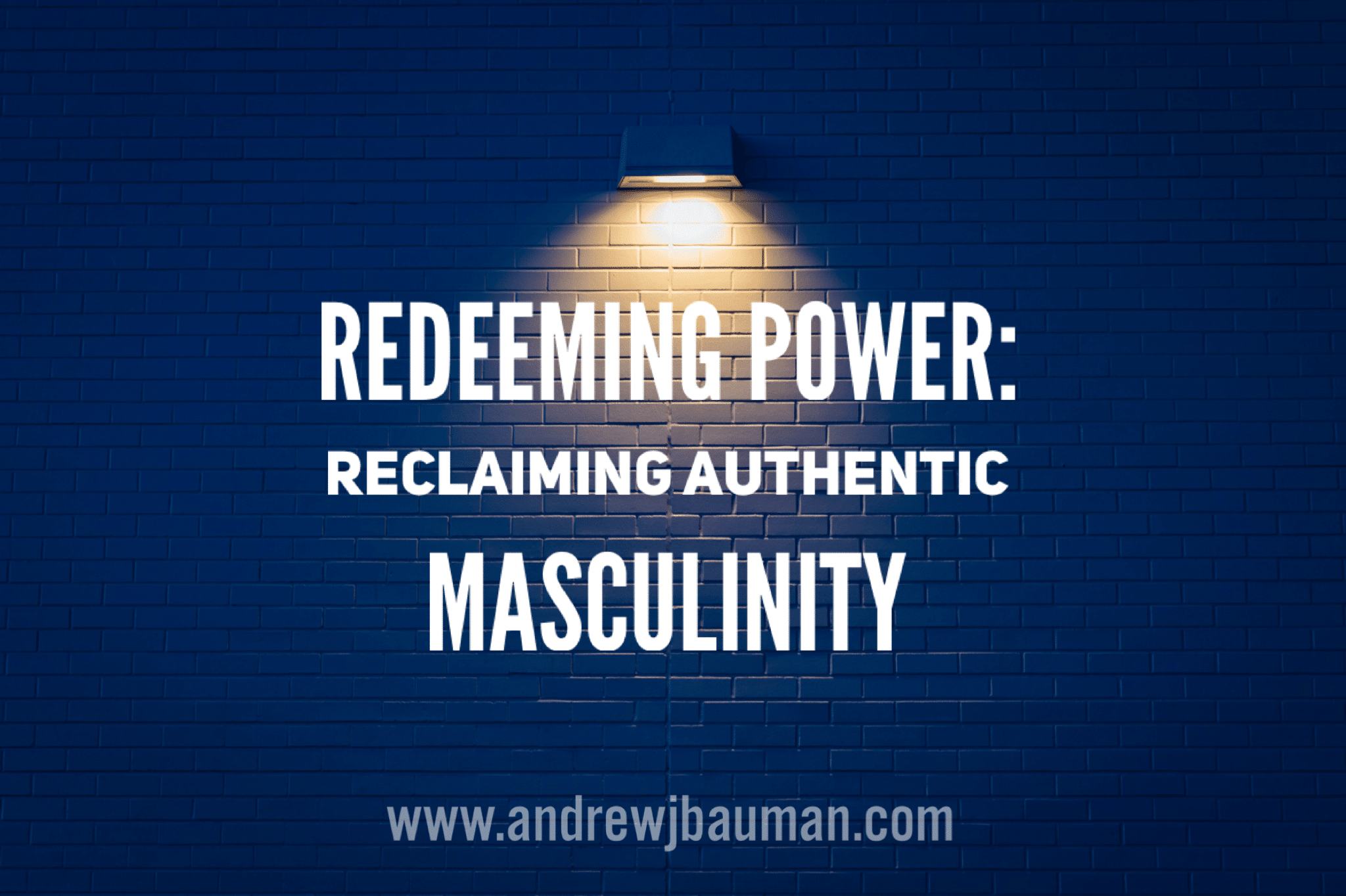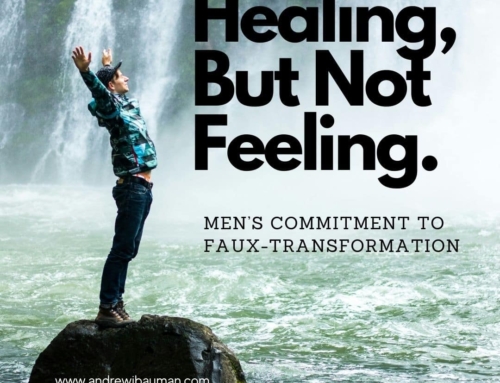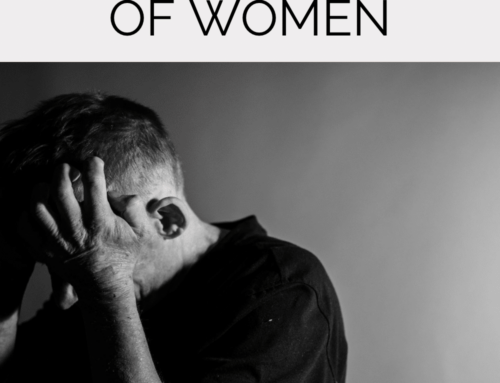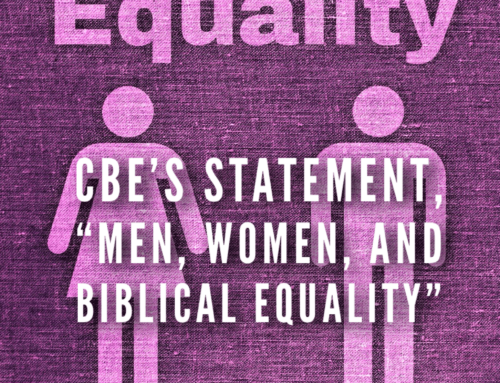The answer to becoming a safe and good man is not becoming weaker (humble, yes—weak, no); it’s about becoming more powerful (not aggressive). However, stepping into authentic masculine power can seem like an oxymoron that conjures up images of the Marlboro man, or thoughts of violence, homophobia, misogyny, money, and greed. That is not the masculinity I am referring to, but only the kind that taps into our God-given glory and power. Healthy power is living into who God has made us to be. This is one of my biggest problems with the twelve-step model of recovery. Naming your “powerlessness” over addiction is a very important first step, but if you don’t take your power back and reclaim your lost strength over addiction you can remain a slave to your addictive cycles. We can have power over addiction when we remember who, and whose, we are. We are children of God, and heirs (Romans 8: 16-17), image-bearers of God (Gen. 1:26), and are meant for glory, goodness, and liberation. We must redeem power from its negative connotations and reclaim an authentic masculine power that liberates rather than oppresses.
I remember as an adolescent trying to “prove” I was a man. I would attempt ridiculously dangerous feets, trying to reassure my fragile ego, knowing if I survived it, then I was a man. I remember one night, jumping off an 80 ft. bridge into a lake, and not being able to move my neck for a week. Another time after college, I hiked the Appalachian Trail for three months, icing my swollen feet every few miles after I tore all the muscles in the bottom of my feet and falling 1,273 miles short of completing the entire 2,173 journey. I remember setting up boxing matches with some buddies trying to knock each other’s heads off to prove how tough we were. I remember sexualizing and objectifying women, trying to “get some” from the “hottest” girls at school as a way to fit in with the boys, and feel more “like a man.” These are examples of fragile masculinity that I used to live into, though these feats could never answer the question inside my soul no matter who or what I brought my question too. I was committed to proving that I was not my father, which ultimately led me to be very much like him indeed.
I remember visiting a family member’s church during a holiday. The pastor put up two images side by side—one a male dressed in a romper and the other a picture of an American military man with an assault rifle. He said, “Which is the image of true masculinity?” “Which one would you want to protect you?” “This is a picture of what men are becoming these days, and this is what we men must return to.” My wife got up and walked out. I sat there a bit stunned, grabbed my pen, and wrote frivolously about what I was experiencing. Though I am not much of a romper man myself, the picture of healthy masculinity portrayed at this church was pure violence. Really?! What type of masculine power is that? If bearing an assault rifle is what makes us a true man then we are deeply misinformed and misguided on what is authentically masculine. Newsweek reports that AR-15 rifles were used in 26 percent of the last 80 mass shootings in America. Evangelicals have had a long-standing confusion about what healthy masculine power truly is. Dr. Kristin Kobes DuMez speaks to this reality in her book, Jesus and John Wayne. She states,
“Although Wayne occupies a prominent place in the pantheon of evangelical heroes, he is but one of many rugged and even ruthless icons of masculinity that evangelicals imbued with religious significance. Like Wayne, the heroes who best embodied militant Christian masculinity were those unencumbered by traditional Christian virtues… For many evangelicals, these militant heroes would come to define not only Christian manhood but Christianity itself.”
I grew up on this as the ideal of what masculinity was. No wonder, I became an ass. Somewhere in my adolescent brain, my “assness” was connected to what it meant to be a real man of God. This is so backward and dangerous, and sadly, all too common.
So what is “redeemed power” and healthy God-pleasing authentic masculinity? We have many examples of what it is not, but what is it truly? We must have more models showing what it is and not just negative examples of what it is not.
I think of two examples from my own life and one from the life of Jesus. (Just to be clear, Jesus has a lot more examples of healthy masculinity than just this one, but I just thought of this one and wanted to write about it.)
First, I think of the masculinity it took me to hold my son’s lifeless body in my hands. We are not meant to hold death and love so closely. I think of the agonizing act of handing his beautiful body back to the nurse as I crumbled to the floor and screamed for hours. I think of my courage when I decided that my friends and I were the ones that needed to bury him in the earth with our bare hands. Is that uniquely masculine? No. Yet, it took all of me; it took grief and courage for me to honor the truth of what needed to be done. I can think of nothing more painful and more masculine in my life. Authentic masculinity is a unique mixture of strength, kindness, courage, and grief.
Another more recent example of authentic masculinity from my own life was the sudden death of my father. It all happened so quickly. He was recovering from gallbladder surgery on Monday, talking to the nurse about his kids and doing well. Not long after that, he told the nurse he was not feeling well and his blood pressure suddenly dropped, his eyes rolled back in his head, and his heart stopped beating. They tried for 45 minutes to revive him. He was ready to go, but I still had things to tell him. Maybe that’s why I needed to face his body, to tell him the things he wasn’t ready to hear while he was alive. My wife and I flew down to Florida and were greeted by the boisterous funeral director. The brash loudness of his voice on such a somber occasion caught me off-guard. As we walked into the dimly lit entryway, we were surrounded by musty 1970s decor. Without ceremony, he hastily grabbed the viewing room door handle and invited us to walk into the room where my father’s body lay. I stopped him and asked for a moment to prepare my own body, and for some water to help soothe the lump in my throat. A staff woman hastily passed by us into my dad’s viewing room muttering, “Oh hell,” then turned to us in apologetic horror upon realizing that we were standing right behind her.
The chatty funeral director quickly changed the subject, asking where we were from. “Seattle,” Christy answered. She attempted to buffer his insensitivities as I stared silently at the door, trying to swallow my dread. He began showing us pictures on his phone of his daughter’s apartment; she had apparently just moved to Seattle. I knew what I needed to do. I needed to face my terror and come face to face with my father. My grief and strength were so close to the surface. I interrupted the director’s monologue about Seattle traffic and told him I was ready to see my dad.
He opened the door to reveal a large viewing room where there were over thirty chairs set up and facing my dad’s body. We slowly began to walk to the front of the room, but I had to stop about 5 feet away. I could not move any closer. My tears and loud moans began as I tried to wrestle with my body to move nearer. After about a minute or so, I had to turn my back; it was all too much to bear. I stood there and wept.
While he was alive, he had asked to be cremated, so there was no casket. My dad was lying on a bed covered by a blue patchwork quilt. He looked so peaceful, I could have mistaken him for sleeping. I kept wondering if he was going to open his eyes, if he would wake up, if maybe I would get another chance to talk with him. It felt strange and wrong that no one else was there to witness this. I wept for a long time, surprised by the amount of unlived life I was grieving; all my hopes and years of fighting for my father to be someone he could not. He was like a familiar stranger. After my tears subsided, I asked Christy to sing. Soft stanzas of old hymns gently filled the room. Then I played a song my father loved, “Daddy’s Song” by Dennis Jernigan. Another wave of emotion swept over me and I asked Christy to leave so I could be alone with him. With all the strength I could muster, I said aloud, “Why, Dad, why? Why were you not around? Why??” I continued to ask, hoping to somehow understand how he had remained so distant and uninvolved in my life. I thought about what a cool person I’d turned out to be and how much he had missed out on. I told him I forgave and loved him. I told him the truth; that I was disappointed and had needed him when he wasn’t there. I wept loudly. I told him I loved him and whispered goodbye. I turned and slowly walked out of the room, knowing this was one of the bravest and kindest moments of courage in my life.
Now looking back at this moment, I think this is what it means to be authentically masculine. A mixture of kindness, strength, and grief that creates safety, stability, and rest to others that I am in a relationship with. I listened to my body and knew what I needed to do. I knew what I needed to say. I knew I needed to face his body. My siblings said they weren’t interested in viewing his body, so I needed to pay the $400 to prep his body, so I could have the viewing by myself. I knew what I needed to do no matter the cost. My body needed to process my loss in this way, it was the only thing that made sense to this grand new absence in my life. And here, 2 years later from the loss of my father, I am so glad I had the courage to face my heartache and my father in the way I did. This moment was one of the most masculine moments of my life up to this point.
My final example of healthy masculinity is Jesus himself. Stay with me here, particularly the story that most reminds me of authentic masculinity is the story of Jesus and the woman at the well. This story has quickly become one of my all-time favorites and a beautiful picture of the healthy masculine.
Jesus modeled the breaking down of stigmas and social strongholds in John 4:1-42 with the woman at the well. At that time, Jewish men were not permitted to even talk with Samaritan women in public. The woman wonders aloud in verse 9, “How can you, a Jew, ask me, a Samaritan woman, for a drink?” Jesus ignores social barriers, demonstrating the truth that all are equally important. The cultural norm at the time was to view women as unclean as described so eloquently in the ancient Jewish texts: “menstruants from the cradle” (Mishnah, Niddah 4:1). Patriarchy and misogyny were thick in Jesus’ day, and it is in this cultural context that we see how radical this story of Jesus is.
Theologian Dr. Matthew Williams (2011) points out this woman was an “outcast within the outcasts.” He states, “The Samaritans would be labeled as unclean by Jewish people. And, the Samaritan woman would also be labeled as an unclean sinner by the Samaritans themselves. Thus, she was an outcast within the outcasts. Rejected by the Jewish people; rejected by her own people; apparently even rejected by her five husbands, she was unclean and carried shame around with her every day of her life. Perhaps that is why she came to the water well—alone—in the middle of the day.” Yet Jesus treats her no differently than if he were there with King Herod himself. He invites this outcast into a deep intimacy by asking for a drink (John 4:1–42). He actually shared spit with an “unclean” woman! The prevailing thought of the day was that this act alone would literally send a person to Hell. Jesus steps into his masculine power through this radical act of kindness and love! The strength he shows by choosing to break social norms and show love to this woman who was socially scorned is wildly powerful in every way. These are the types of powerful subversive actions that will eventually lead to our Savior being crucified on a cross and laying his life down for those who do not see him. It reminds me of the call of Ephesians 5:25, “For husbands, this means love your wives, just as Christ loved the church. He gave up his life for her (NLT). This is our call as well. To step into our authentic masculine power is to know who we are (no more insecure boys masquerading as narcissistic men) and give of ourselves out of a place of centeredness and security. Jesus knows who he is with the women at the well, and he knows what he offers, “living water” (John 4:14).
Power is not a bad word. What you will do with your power, is the question. Will you abuse? Will you have power over or power with? Authentic masculinity is meant to help liberate not oppress, to humbly grieve loss, and celebrate and love with deep abandon.






